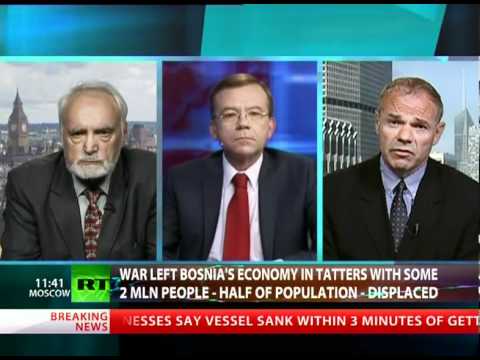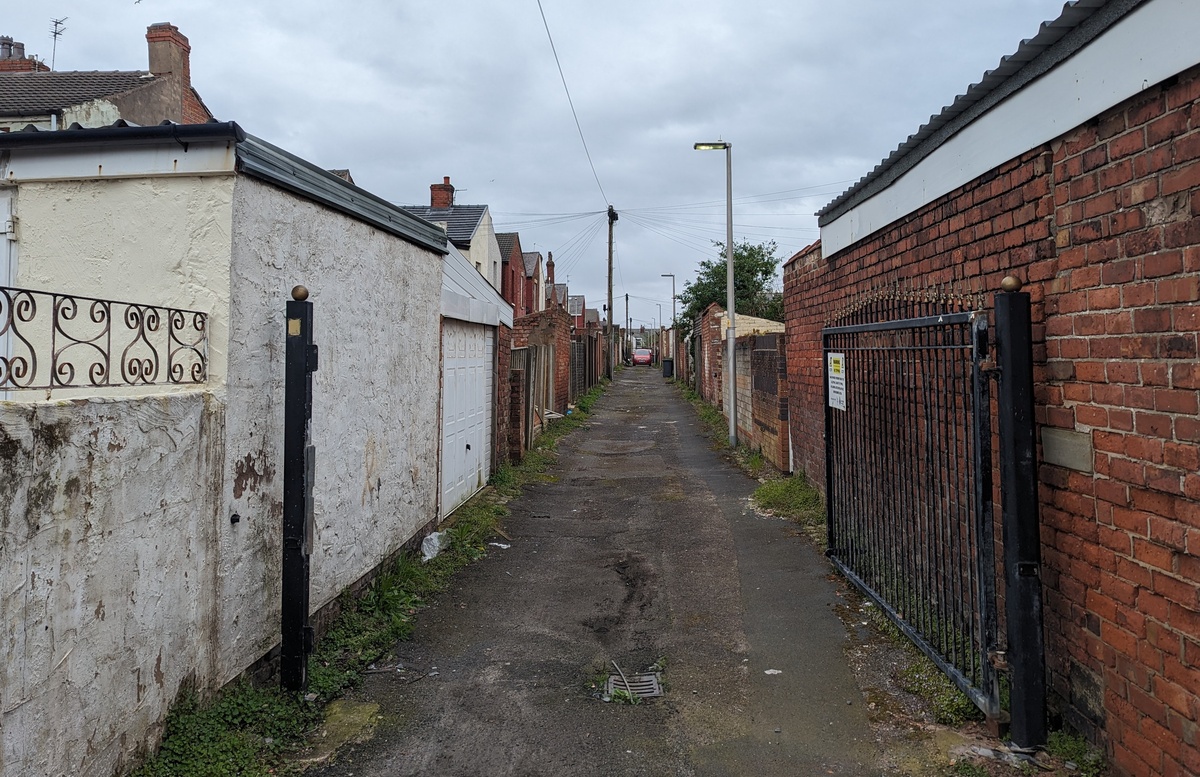
Reuters carries an article regurgitating the usual mass media line.
I do not claim to know anything except what I have read, but I believe John Pilger’s book highlighted the fact that the FBI was sent to investigate the genocide in Kosovo but departed early due to them not being able to find any evidence. I stand to be corrected.
Whatever the case maybe, this site has an alterntive perspective to the main stream media.
Here is an excerpt.
How NATO’s Hugely Successful Anti-Serb Propaganda Efforts In The 1990s
Became A Model For The Bogus ‘Public Relations’ Campaign For The 2003 Invasion Of Iraq
“A United Nations court has ruled that Serbian troops did not carry out genocide against ethnic Albanians during Slobodan Milosevic’s campaign of aggression in Kosovo from 1998 to 1999… The court, which is comprised of two international judges and one Albanian, was ruling on the case of a Serb, Miroslav Vuckovic, convicted of genocide by a district court in Mitrovica”.
Kosovo assault ‘was not genocide’
BBC Online, 7 September 2001
“…. it was impossible for Milosevic to accept the Rambouillet [peace] agreement because what it asked him to do was allow Nato to use Serbia as a part of the Nato organisation. Sovereignty would have been lost over it. He couldn’t accept that. I think what Nato did by bombing Serbia actually precipitated the exodus of the Kosovo Albanians into Macedonia and Montenegro. I think the bombing did cause the ethnic cleansing. I’m not sticking up for the Serbs because I think they behaved badly and extremely stupidly by removing the autonomy of Kosovo, given them by Tito, in the first place. But I think what we did made things very much worse and what we are now faced with is a sort of ethnic cleansing in reverse. The Serbs are now being cleared out [of Kosovo by the Albanians]. I think it’s a great mistake to intervene in a civil war. I don’t think [Milosevic] is any more a war criminal than President Tudjman of Croatia who ethnically cleansed 200,000 Serbs out of Kyrenia [with the secret help of the CIA]. Nobody kicked up a fuss about that. I think we are a little bit selective about our condemnation of ethnic cleansing, in Africa as well as in Europe.”
Lord Peter Carrington – British Defence Secretary (1970/74), British Foreign Secretary (1979/1982), Secretary General Of NATO (1984/1988)
Saga Magazine, September 1999
httpv
There Was No Genocide In Kosovo
Above, the late former Serbian President Slobodan Milosevic on trial at the Hague
There were bad actors on all sides in the Yugoslav civil wars of the 1990s, but Serbian President Slobodan Milosevic was by no means the worst of them. Some of these ‘players’ were even covertly assisted by western countries, including active participation in anti-Serb ‘ethnic cleansing’ by the CIA behind the scenes.
So why did the West go to such lengths to selectively demonise Serbia above the other nations involved in the conflicts?
The core justification for the 78 day NATO bombardment of Serbia in 1999 was the accusation of Serbian conducted ‘genocide’ against Albanians in the Serbian province of Kosovo. Yet those ‘casus belli’ allegations were not subsequently pursued at the war crimes tribunal at the Hague due to lack of evidence. Indeed, in September 2001 a UN court in Kosovo ultimately ruled that the allegations were untrue.
Those claims were in fact no more real than the later claims, used to justify a further illegal attack on another nation in 2003, that Iraq had weapons of mass destruction. Today most of the public now understand the fraud of the Iraq war, even it it seems they are powerless to hold anyone to account for it (the British Chilcot inquiry into the war has no powers of sanction, for example).
However, most people still remain unaware of the earlier fraud conducted against Serbia by NATO , thanks in large part to Milosevic’s untimely death at the Hague, a sudden development which prevented his trial reaching a conclusion. Yet, the whole Kosovo episode faced the prospect of being reborn as a new major media story once the judgement had been issued, had Milosevic lived to the end of the trial.
The re-ignition of the story would have been an eventuality loaded with embarrassment for the western powers. For at that point of ‘denouement’ it would have been impossible to prevent the broader general public from realising that the original claims of genocide used to justify the war against Serbia had been dropped.
Previously the abandonment of those charges was something only scantily reported on by the international media community, most of which had subscribed to, and relayed, the original bogus narrative which the actual trial process of Milosevic had failed to verify. In this awkward situation media reporting from the trial itself became largely notable by virtue of its general absence.
The falsely genocide-justified bombardment of Serbia by NATO in 1999 was illegal. No NATO member country had been attacked by Serbia (nor could Serbia have conceivably been regarded as a threat to any NATO member state), and there was no United Nations approval for the bombardment.
Seven years later, with the prospect of a less than ‘helpful’ outcome to his trial, the death of Milosevic at the Hague was greeted by a hypocritical mixture of crocodile tears (over the trial being prevented from reaching a conclusion), and muffled sighs of relief (for the same reason) in western corridors of power.
Milosevic’s death in custody meant that much residual shame and embarrassment could now finally be buried.
Dr David Kelly was the leading expert adviser to the British government on chemical weapons and the related situation in Iraq after 9/11. After the ensuing invasion of that country the steadily ‘leaking’ Dr Kelly died in controversial circumstances on 17 July 2003.
The day before his death he had appeared before a parliamentary committee which met in closed session. He disclosed that although he had been sure before the invasion that Iraq had a development programme, he thought it was only 30% likely that Saddam Hussein actually had chemical weapons. He said, “The 30% probability is what I have been saying all the way through … I said that to many people … it was a statement I would have probably made for the last six months.”
This expert opinion stood in strong contrast to the chemical and biological weapons threat asserted to be ‘serious and current’, ‘beyond doubt’, and deployable ‘within 45 minutes of a decision to do so’, in the pre-war official position of the British government that Dr Kelly himself had been advising. Had he lived long enough, we may well have learned more about this, particularly if he had appeared in public at the subsequent Chilcot inquiry.
Just days before his death at the Hague Milosevic himself had asserted in a letter to the Russian government (the text of which was released by Associated Press) his concern that he was being wilfully poisoned through the administration to him of an inappropriate drug for his health problems. Whether true or not, one thing is clear. Milosevic’s premature demise before the conclusion of his trial was a great piece of luck for British Prime Minister Tony Blair, or those who had steered him, on a scale rivalling the death of Dr Kelly (who was later reported to have been writing a book on the Iraq affair at the time of his demise).
For unlike Clinton or Bush, whose terms did not span the full period, Blair had the unique distinction of being a leading advocate for both conflicts, Kosovo and Iraq, during his time as leader of the United Kingdom.
httpv




More Stories
SMOKING GUN FBI DOCS ON FAUCI SCANDAL
Quadruple Vaccinated Youth Are 318% MORE LIKELY TO DIE Than Unvaxxed Peers…Is Anyone Surprised??
Judicial Watch Sues Energy Department for Records on Retroactive Termination of President Trump’s Security Clearance